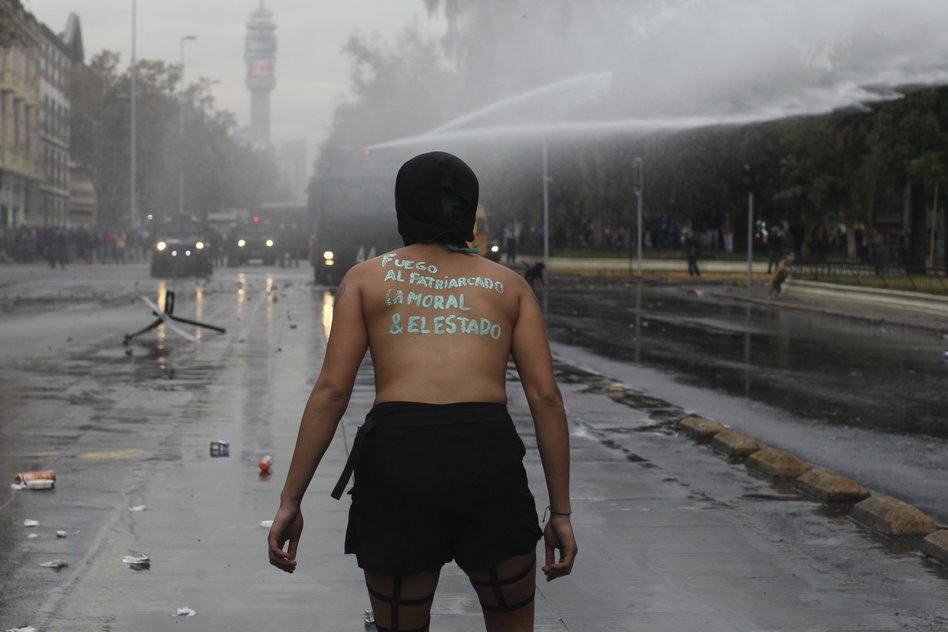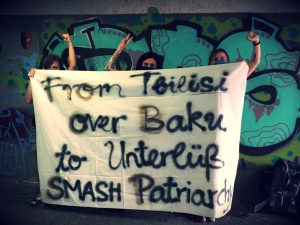
The sad stories about violence against women rise in connection with traditional ideas within society paired with state silence. Violence not only damages the body, but also weakens and destroys women’s self-esteem and resistance. Many women cannot escape these situations because violence against women is a system of patriarchal society and it takes courage to resist and stand up to this system.
The patriarchal state protects capital and property but is silently when a woman is beaten, raped or even murdered because of domestic violence. The state protects patriarchy. In addition to traditional, nationalist and conservative thinking, the authoritarian understanding of the state was strengthened and political and social pressure on women increased. Violence is justified by traditional religious prejudices, gender-discriminatory guidelines and laws. These policies and laws are a major problem that deeply hurts, undermines and divides society. All forms of psychological and physical violence against women would be less possible without basic structural violence against women.
Women who suffer from domestic violence are often unable to escape this situation. There are many reasons for this: social harassment, humiliation of women living alone, lack of economic freedom when married, divorce as a perception of shame. The social acceptance of the use of violence against women provides the breeding ground for the concealment of violence and leads to women becoming increasingly invisible.
We are the women who have experienced psychological, physical, sexualized, structural violence!
We are hundreds of quiet women who have lost their lives in honour killings!
We are women who are sexually and physically attacked because we want to work, because we go out at night!
We are women who are raped in custody!
We are the women whose virginity influences their esteem.
We are women who are humiliated by all organs of state and society and try to discourage and rape us in the police station because of our sexual orientation and sexual identity!
What we experience is only the result. Those through tradition, exploitation mechanism, unemployment, poverty, war politics and lack of education have led to an incredible amount of domestic violence, madness, suicide, sexual harassment.
We condemn these mechanisms of oppression and exploitation, which prevail because of patriarchy, nation-states and capitalism! We will do our best to end these oppressed situations and we will not stop fighting until we reach our goal.
We support the participants of today’s demonstration in Baku who want to show with the demonstration that we ourselves have to carry our demands to the streets in order to make them heard and visible! Violence against women is political!
Collective Rhizom Schwarzer Bete
Demonstration: https://www.facebook.com/events/1136124123253858/?active_tab=about

